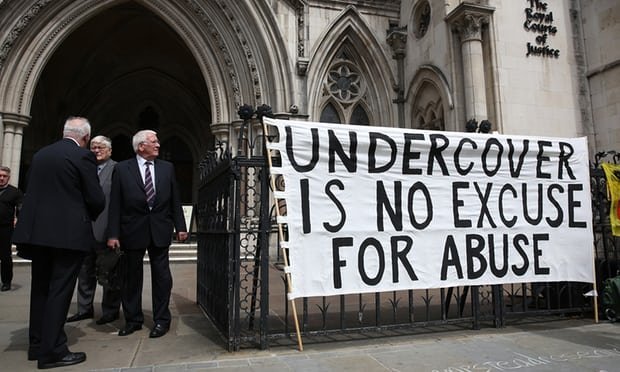UNITED KINGDOM: The undercover policing of political protest
(CENTRE FOR CRIME AND JUSTICE STUDIES)
For decades, hundreds of police officers carried out secret operations against a wide range of political and trade union activists. They assumed fake identities and built relationships with campaigners to infiltrate social justice movements, and then reporting back to senior officers.
Once these operations came to light, the government acceded to a judge-led investigation it named the ‘Undercover Policing Inquiry’. The title itself is misleading. It is not an inquiry into undercover policing in the round but, as the title of this briefing suggests, one focused on the secret policing of political protest movements.
Many would not challenge the necessity of undercover policing for those tackling trafficking human beings, or child sexual abuse rings. Few would think necessary the secret policing of someone writing a leaflet opposing the McDonald’s burger chain.
The confusion of undercover policing in general, with secret policing of political campaigning in particular, serves only to strengthen the impression that those under observation may be a threat to the country. It serves to legitimise the very operations which are supposed to be under investigation by the inquiry.
This briefing, which foregrounds the voices of those subject to secret political policing, left me with a profoundly uncomfortable feeling about the nature of the country I grew up in and the contemporary democracy we all inhabit. Four decades of secret policing took place without anyone in a position of power or authority taking the view that there was something seriously wrong. The practice continues to this day.
Are we seeing the tips of two icebergs? First, the sheer size and scope of the undercover operations that have taken place, and the time it will take for the full story to emerge. Second, of a resistance by the police bureaucracy, including proven file shredding, to the transparency required for the inquiry to fulfil its purpose.
Those who argue there is a genuine rationale for such operations may begin to wonder whether it will prove possible to hold such activities to account. For others, this will demonstrate that the secret policing of political campaigners fundamentally compromises the democracy we share and as such should not take place at all.
***

